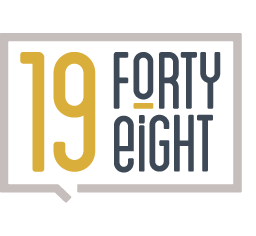We often talk about people who have “influence” or who “make an impact” — especially in leadership, communication and culture. But in reality, those words are often used interchangeably and are rarely defined. What is the difference? And more importantly: how do you develop both?
Influence is about presence. Impact is about legacy.
Influence is your ability to shape the moment. It’s how you’re perceived in the room, how people respond to your ideas and how you shift thinking in real time. Think of it as your live signal — are people tuned in? Are they listening? Are you getting through?
Impact, on the other hand, is what lasts. It’s the change you leave behind after you’ve left the room. It’s the decision people made differently because of you. The email they rewrote. The culture that shifted.
You can have influence without impact — the kind of charisma that makes people nod but doesn’t change a thing. And you can have impact without influence — ideas that land eventually, but without your presence driving them home. But the real power lies in both.
So how do you cultivate influence and impact?
- Know what you stand for. Say it well.
Influence starts with clarity. People who make an impression tend to stand for something. They don’t try to be everything to everyone. Whether it’s a commitment to transparency, excellence, equity, creativity — your values need to be visible in your language and your behaviour.
Ask yourself:
- What do I want to be known for?
- What do I want people to feel after they’ve interacted with me?
- What kind of communicator do I admire — and what do they do that I don’t (yet)?
At 1948, we often help clients build their influence by looking at tools from the actor’s world: voice, breath, body language, pace. Because when you embody what you’re saying, people listen differently.
- Master the moment, not the script.
Influence is dynamic. It lives in the now. And that means it’s less about having the perfect words, and more about being able to respond.
That’s why we focus so much on live practice. Not role play, but real communication — pitching an idea, giving feedback, navigating tension. The question isn’t “Did I get it right?” It’s: “Did I connect?”
Impact, after all, comes from real connection. People don’t remember perfect scripts, they remember how you made them feel.
- Say the thing no one else is saying.
True influence often comes with courage. It’s not just about speaking well — it’s about speaking up.
In any team, there are the things being said out loud, and the things being silently felt. The most impactful leaders are often the ones who can name the elephant in the room, without blowing up the room.
They ask the brave question. They challenge constructively. They give feedback that’s honest and generous.
And here’s the good news: this is a skill. You don’t have to be born with a spine of steel. You just need the tools to speak with clarity and care — and the practice to do it consistently.
- Focus on conversations, not just content.
You can have the best idea in the world — but if you can’t get it across in a way that lands, it won’t stick.
Real impact is built through how you communicate, not just what you say. That means thinking about audience. About timing. About how you invite others in.
We help clients think like actors in this way. What’s the objective? Who’s your scene partner? What’s the dynamic you’re trying to create?
Because communication isn’t a monologue — it’s a moment of shared energy. That’s where influence lives. And that’s how impact begins.
- Leave a trail.
Finally, impact is also about what happens next. It’s about giving people something to take away — a mindset shift, a new behaviour, a new standard.
Ask yourself:
- What do I want this person/team to do differently after this conversation?
- What would ‘success’ look like for them — not just for me?
- How can I follow up in a way that deepens the learning, not just ticks a box?
Leaders with impact don’t just deliver messages. They shape momentum.
Influence and impact are not personality traits. They’re choices. Habits. Skills.
You don’t have to be loud to be influential. You don’t have to be senior to be impactful.
You just need to be intentional — about how you show up, what you say and what you leave behind.
At 1948, we teach people to do just that — to say the hard thing well, and to build a culture where words actually move things forward.
By Simon Coleman | 1948 Co-founder | Actor | Leadership Communication Specialist
Get in touch here if you’d like to find out more about our influence and impact work


